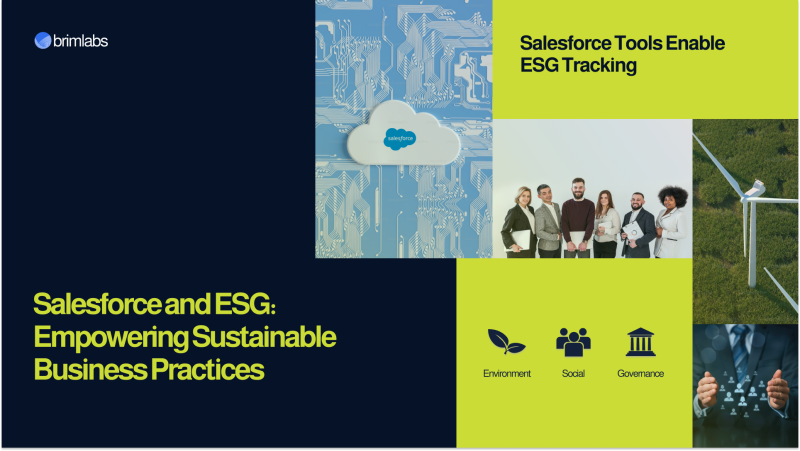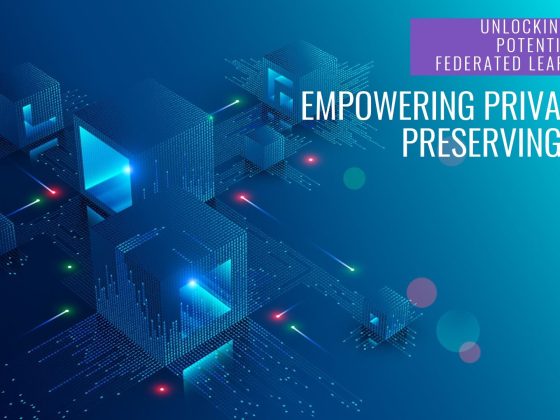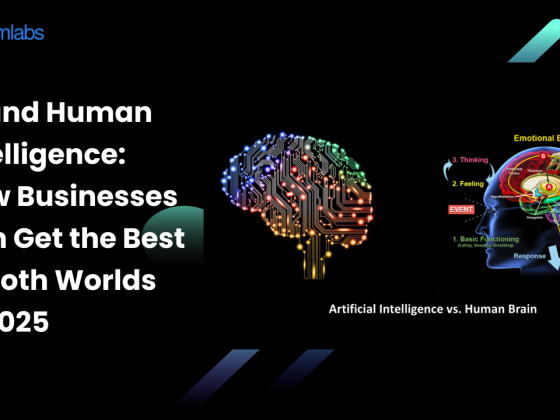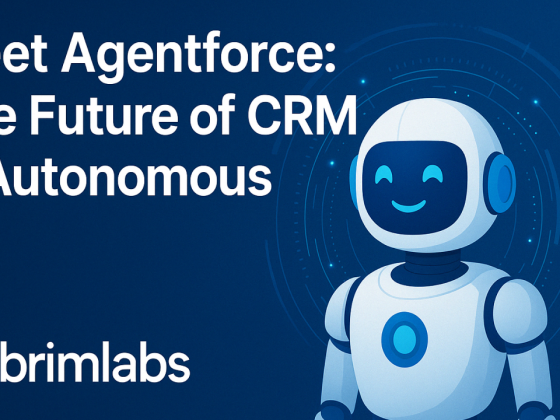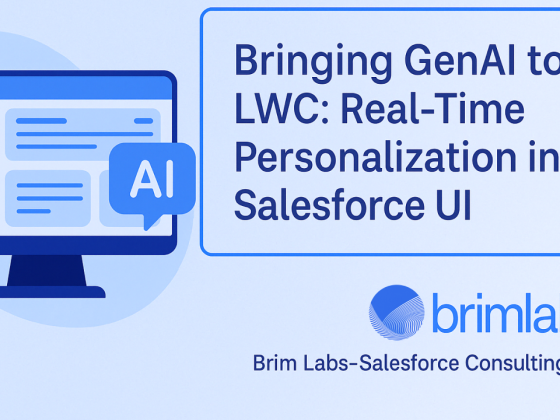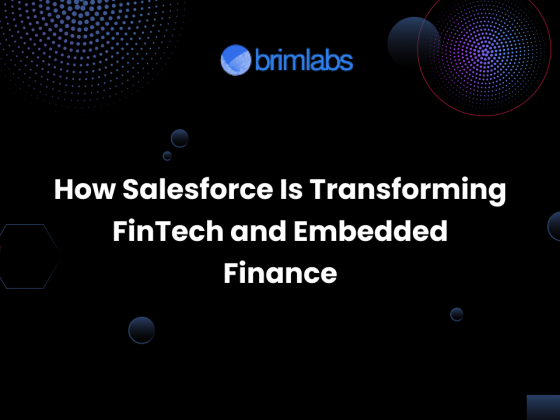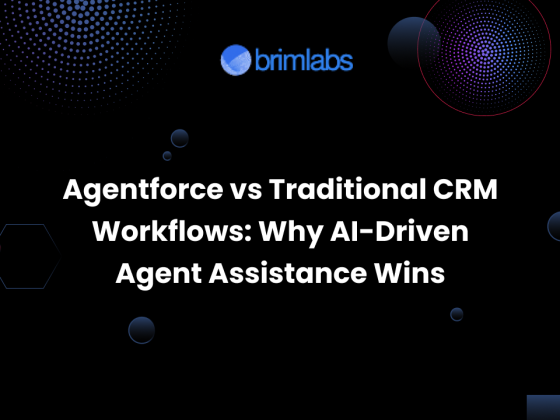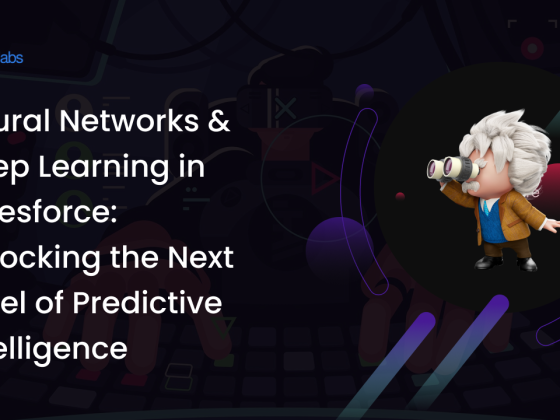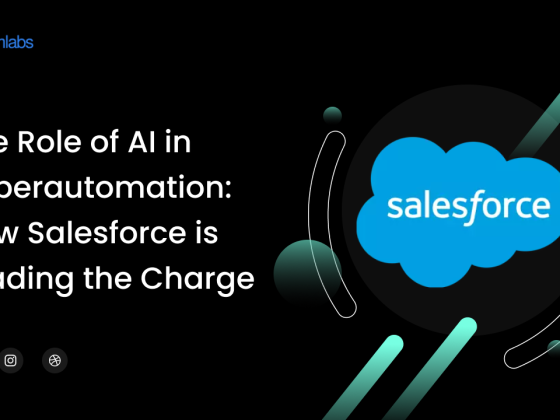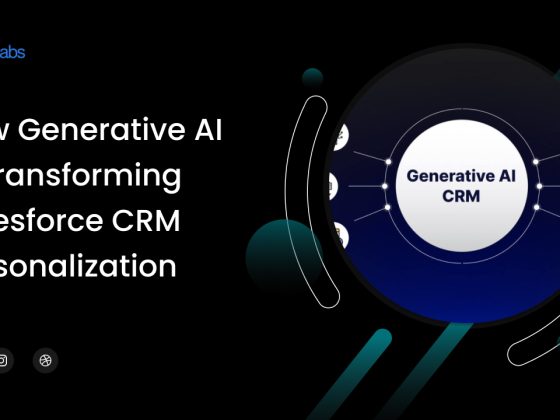Businesses are facing growing pressure to align their operations with ethical and sustainable standards as environmental, social, and governance (ESG) issues become more prevalent worldwide. Three essential elements are referred to as ESG and are used to assess a company’s sustainability commitment:
- Environmental: How a business controls its environmental effect.
- Social: How it handles connections with workers, vendors, clients, and local communities.
- Governance: The way it runs, including shareholder rights, audits, and leadership.
With sustainability at the forefront of business strategy, a lot of companies are implementing ESG frameworks to show ethical duty and accountability. Leading the way in cloud-based CRM solutions, Salesforce has been instrumental in enabling companies to adopt ESG practices that guarantee operational effectiveness and compliance.
ESG tracking has changed dramatically with the advent of solutions like Net Zero Cloud and Salesforce’s larger platform. These technologies assist companies lower their carbon footprint, increase social responsibility, and comply with governance rules by allowing them to monitor, manage, and report on their sustainability targets in real time.
Breaking Down ESG in Salesforce
a. Environmental
- Carbon Footprint Management: Use Salesforce Net Zero Cloud to monitor Scope 1, 2, and 3 emissions.
- Energy and trash Management: Keep an eye on efforts to reduce trash and use renewable energy.
- Sustainability Objectives: Use personalised dashboards to set and monitor net-zero goals.
b. Social
- Workforce Diversity and Inclusion: Reporting and analyzing demographic data to promote equity.
- Employee and Customer Well-being: Using Salesforce tools to track engagement and satisfaction.
- Community Contributions: Logging corporate social responsibility (CSR) initiatives like donations and volunteering.
c. Governance
- Policy Adherence: Tracking compliance with governance standards.
- Transparency Reporting: Creating ESG reports aligned with frameworks like GRI, SASB, or CDP.
- Ethical Operations: Ensuring adherence to anti-corruption policies and best practices.
How Salesforce Tools Enable ESG Tracking
A whole range of functionalities for effective ESG tracking and reporting are available with Salesforce’s Net Zero Cloud:
- Carbon accounting: Allows for real-time tracking of sustainability initiatives and assists organisations in measuring their carbon emissions across scopes.
- Data visualisation: Makes it possible to create reports and dashboards that offer information about sustainability performance.
- Integration with IoT and AI: Salesforce makes predictive analytics and real-time monitoring possible by integrating with IoT devices and utilising AI. This allows for actionable information that can enhance sustainability outcomes.
- Automated Reporting: This ensures accuracy and transparency while lowering the amount of manual labour needed for compliance by automating the production of ESG reports.
- Einstein Analytics: Businesses can anticipate future ESG trends and modify their plans by using Einstein Analytics’ sophisticated data analysis and forecasting services.
Benefits of ESG Tracking in Salesforce
- Compliance: Salesforce lowers the risk of non-compliance by streamlining adherence to international ESG rules. Businesses may make sure they are adhering to national and international standards by offering automated reporting and tracking systems.
- Transparency: Companies using Salesforce for ESG tracking are able to publicly update stakeholders, investors, and clients on their progress. By demonstrating the company’s dedication to moral and sustainable business practices, transparency in ESG initiatives fosters confidence.
- Efficiency: Salesforce helps companies to minimise manual labour in ESG tracking through automation and real-time reporting. Teams are able to concentrate on higher-value activities, like planning for future advancements, thanks to this efficiency.
- Reputation Management: A company’s reputation and brand equity are both strengthened when it positions itself as a leader in sustainability. Businesses that use Salesforce for ESG are more likely to be seen as morally upright and conscientious.
- Investor Appeal: Today’s investors place a high value on sustainability. Businesses can expand their financing options and draw in eco-aware investors by using Salesforce for ESG tracking.
Case Studies or Practical Applications
- The Sustainability Initiatives of Salesforce
Salesforce has led the way in utilising its platform for ESG tracking, particularly with its Net Zero Cloud, which monitors the company’s sustainability objectives and emissions. Salesforce has set a high bar for other companies to meet with its dedication to reaching net-zero emissions by 2050 and its openness in disclosing these initiatives.
- Production
Salesforce’s ESG solutions have been used by manufacturers to manage waste reduction initiatives, keep an eye on energy consumption, and make sure their supply chains are running sustainably. A major international firm might, for instance, monitor the carbon footprint of its suppliers and establish goals for lowering it throughout its whole value chain.
- IT and retail
Salesforce is being used by retailers and IT firms to measure diversity and inclusion indicators, manage supply chain emissions, and keep an eye on the ethical sourcing of products. These sectors show their dedication to sustainability and save a significant amount of time and money by automating ESG reporting.
Future Trends in ESG with Salesforce
Technological developments like artificial intelligence (AI), blockchain, and the Internet of Things (IoT) are directly related to the future of ESG tracking. Deeper insights on ESG performance, real-time decision-making, and improved data quality are all made possible by these technologies. Additionally, Salesforce is well-positioned to continue playing a significant role in determining the direction of sustainability reporting as global regulations for carbon trading and required ESG reporting increase.
Getting Started with Salesforce ESG
- Use Salesforce’s ESG tools
Use Salesforce’s Net Zero Cloud as a starting point, modify it to monitor your unique ESG objectives, and automate reporting and compliance.
- Educate Your Groups
Give your staff training on data entry, reporting, and dashboard usage to make sure they are prepared to use Salesforce features.
- Collaborate with Salesforce Professionals
To make sure your platform is completely optimised for sustainability tracking, collaborate with Salesforce experts or partners who specialise in ESG.

Conclusion
Salesforce is at the forefront of assisting companies in integrating sustainability into their main business processes. Salesforce helps businesses accomplish their ESG objectives by offering strong tools for monitoring environmental impact, encouraging social responsibility, and guaranteeing ethical governance. Businesses who use these technologies not only improve their efficiency and reputation but also protect their future in a global marketplace that is changing quickly due to the increased need for sustainability. Salesforce will play an even more crucial role in spearheading this shift as ESG continues to take centre stage in corporate strategy.
Don’t wait to make a difference! Use Salesforce to streamline your ESG initiatives and stay ahead in sustainability and compliance. Contact us today to get started!

